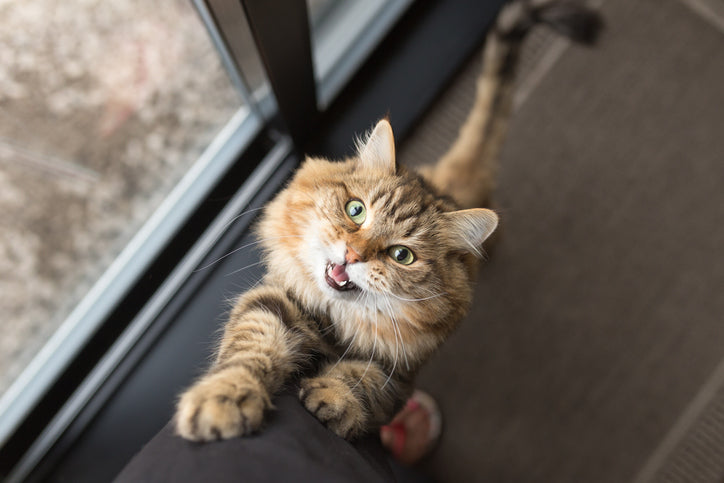
Getting Your Cat to Stop Meowing at the Door: A Guide
Is your cat constantly meowing at the door, whether to be let in or out? While this behavior can be frustrating, there are several strategies you can employ to curb it and restore peace to your home.
1. Determine the Cause
Before addressing the problem, it's essential to understand why your cat is meowing at the door. Is it seeking attention, wanting to explore outside, or simply bored? Observing your cat's behavior and considering any recent changes in their routine can help you pinpoint the underlying cause.
2. Provide Adequate Stimulation
Many cats meow at doors out of boredom or a desire for stimulation. Ensure that your cat has plenty of toys, scratching posts, and interactive playtime to keep them entertained and mentally stimulated. Enriching your cat's environment can reduce their desire to meow at doors out of boredom.
3. Establish a Routine
Cats thrive on routine, so establishing a consistent schedule for feeding, playtime, and cuddling can help reduce anxiety and minimize door-related meowing. Stick to a predictable routine to provide structure and stability for your cat.
4. Ignore Attention-Seeking Behavior
If your cat meows at the door for attention, it's essential not to reinforce this behavior by responding every time. Ignoring your cat's meowing and only providing attention and rewards when they are quiet can help extinguish the behavior over time.
5. Use Positive Reinforcement
When your cat remains quiet at the door, be sure to reward them with treats, praise, or affection. Positive reinforcement can help reinforce desirable behavior and encourage your cat to remain calm and quiet rather than meowing incessantly.
6. Provide Alternative Outlets
If your cat meows at the door because they want to go outside, consider providing alternative outlets for outdoor exploration, such as a catio or enclosed outdoor space. These safe alternatives allow your cat to satisfy their desire for fresh air and outdoor stimulation without the risks associated with roaming freely outdoors.
7. Use Deterrents
To discourage door-related meowing, you can use deterrents such as double-sided tape or motion-activated devices that emit a harmless spray of air when your cat approaches the door. These deterrents can help teach your cat that meowing at the door results in unpleasant consequences.
Seek Veterinary Advice
If your cat's meowing at the door persists despite your best efforts, it may be worth consulting with your veterinarian to rule out any underlying medical issues or behavioral problems. Your vet can provide guidance on managing your cat's behavior and may recommend additional strategies or interventions.
8. Be Patient and Consistent
Changing your cat's behavior takes time and patience, so it's essential to remain consistent with your approach and not become discouraged if progress is slow. With patience, positive reinforcement, and consistency, you can teach your cat to stop meowing at the door and enjoy a quieter, more harmonious home environment.
Conclusion
Getting your cat to stop meowing at the door requires patience, consistency, and an understanding of your cat's needs and motivations. By addressing the underlying causes, providing adequate stimulation, using positive reinforcement, and seeking veterinary advice if needed, you can effectively reduce door-related meowing and foster a happier, more contented cat.


